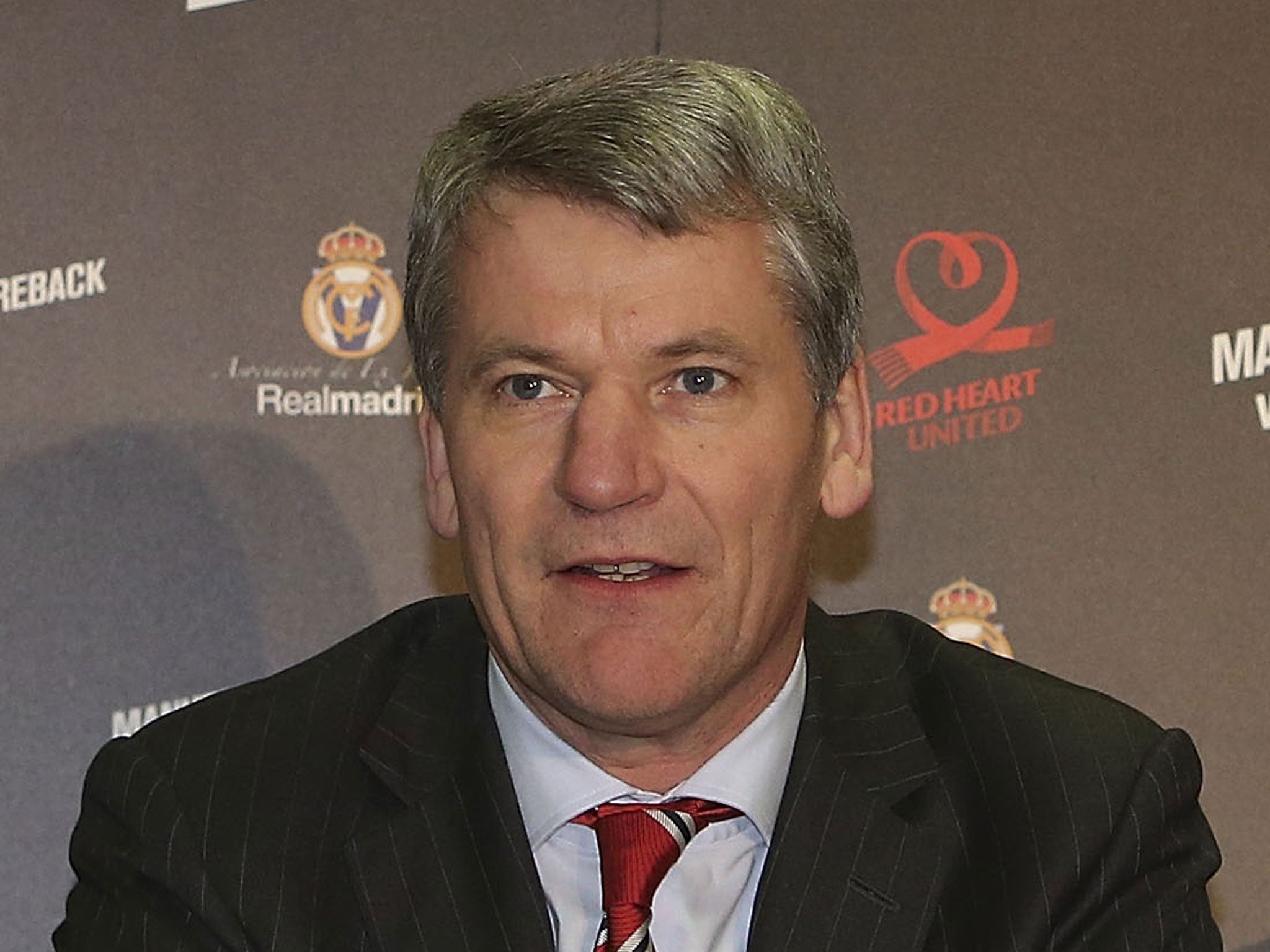Former Manchester United chief David Gill on a collision course with Manchester City over financial role
Gill will have powers to ban clubs from European competition

David Gill, the former Manchester United chief executive who has been an ardent advocate of Financial Fair Play (FFP), will chair the Uefa committee with ultimate power to recommend bans on clubs in breach of the new spending rules.
After becoming a Uefa executive committee member, Gill (below) has been appointed to chair the club licensing committee, a move which could antagonise Manchester City, who hope to reduce £97m losses to the aggregate €45m (£38m) limit allowable by FFP across last and next season.
A Uefa spokeswoman said that the licensing committee will have influence over whether clubs' finances entitle them to a licence to play Champions League or Europa League football.
Gill's committee "monitors the implementation and achievement of the objectives of the Uefa club licensing system" – which analysts believe would allow it to make new recommendations about clubs' entitlement to a licence, if FFP is not seen to be working out as intended.
Gill, who remains a United board member, will exert no control over of Uefa's Club Financial Control Body (CFCB), which will next month begin combing through the accounts of clubs who want to compete in European competitions. But his committee will oversee the entire licensing system.
The leading FFP analyst Daniel Geey, a solicitor and sports lawyer with Field Fisher Waterhouse, has raised the prospect of a club finding itself in breach of FFP by the CFCB just as they reach the semi-finals of next season's Champions League – and thus being expelled – or even having the title withdrawn after lifting the trophy.
That is because the CFCB will only be able to verify whether a club has complied with the financial rules after accounts from both the 2011-12 and the 2012-13 seasons have been received. For clubs, whose year end is March, the accounts won't be available until next season's knockout stages. "If a non-compliant club wins the Champions League in May 2014, they could be sanctioned by having their title removed," Geey wrote.
"The licensing requirements would not bar that club from participating in the competition in the first place. From Uefa's perspective, it is difficult to see how they can get the requisite financial information earlier in order to make decisions."
Subscribe to Independent Premium to bookmark this article
Want to bookmark your favourite articles and stories to read or reference later? Start your Independent Premium subscription today.

Join our commenting forum
Join thought-provoking conversations, follow other Independent readers and see their replies